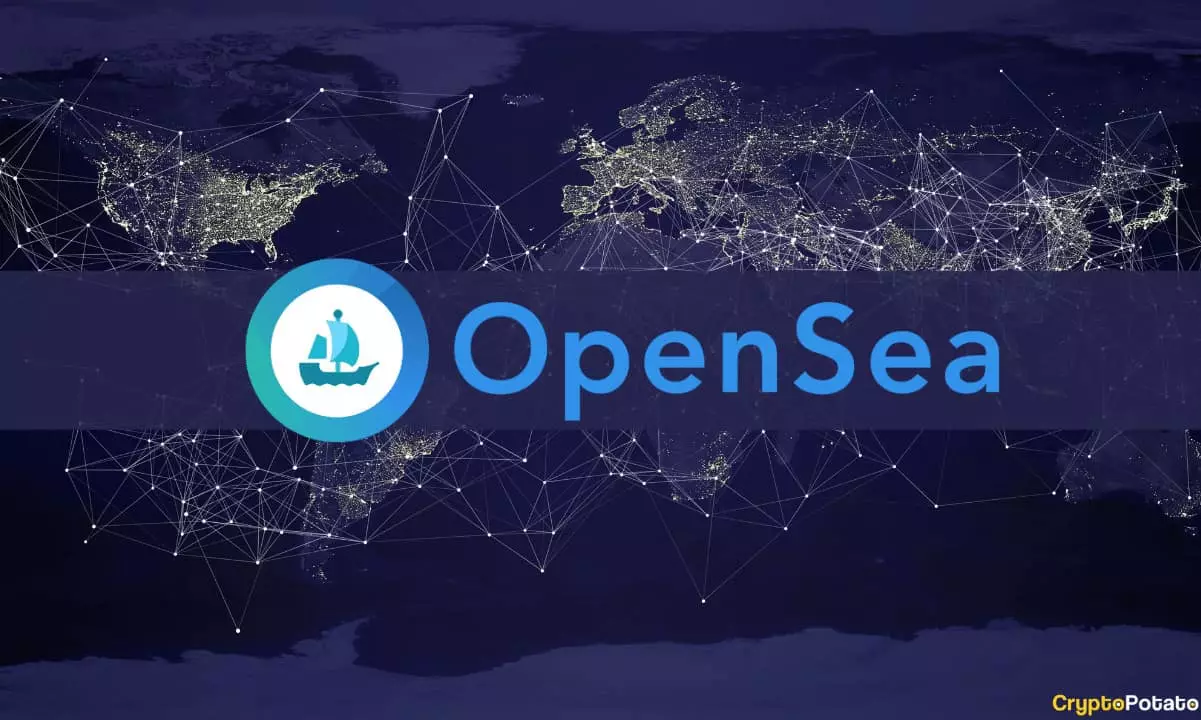OpenSea, once hailed as a titan in the NFT marketplace, is currently navigating through turbulent waters that have significantly reshaped its operational landscape. A combination of reduced user engagement, talent departures, and burgeoning competition has thrown the company’s future into question. In the thriving days of 2021, the platform stood as a beacon for NFT enthusiasts, facilitating unprecedented growth and traction. However, the enthusiasm that once defined the market has succumbed to a stark decline, revealing vulnerabilities that only a year or two ago seemed unimaginable.
One alarming indicator of OpenSea’s challenges is the departure of key executives, which has raised eyebrows among investors and stakeholders alike. In the last quarter, notable figures, including former COO Shiva Rajaraman and former head of business development Jeremy Fine, have left the company to explore opportunities with reputed organizations like Uber and OpenAI. Such high-profile exits aren’t merely a shake-up in leadership but signal potential instability within the company. These resignations may adversely impact OpenSea’s strategic direction, leading to questions about internal morale and long-term vision, particularly as competition intensifies.
Further complicating OpenSea’s predicament is the emergence of rising competitors such as Blur and Magic Eden, which have positioned themselves strategically by offering lower fees and innovative features. These platforms are not just alternatives; they are increasingly appealing to both creators and users drawn by better terms and more robust functionalities. For OpenSea, the challenge of regaining market leadership has grown more daunting, as it must not only address its operational issues but also rethink its value proposition to reclaim its user base from these agile competitors.
To compound OpenSea’s troubles, the platform is under growing legal scrutiny from regulatory bodies, including an ongoing investigation by the U.S. Securities and Exchange Commission. This scrutiny focuses on whether the NFTs traded on its platform might be classified as unregistered securities, a designation that could impose new regulatory burdens on the marketplace. Such uncertainty adds another layer of complexity, as legal challenges could hinder its operational flexibility and customer confidence.
As the landscape evolves and challenges mount, OpenSea must adapt to this new reality. It requires not only a reinvention of its business strategies to attract users but also a proactive approach to bolster community trust and engagement. The trajectory of the NFT marketplace remains uncertain, with OpenSea at a crucial crossroads that could dictate its ability to thrive or merely survive in a rapidly changing environment. Moving forward, stakeholders will be closely monitoring how OpenSea navigates these challenges, aiming to see if the once-dominant marketplace can reclaim its former glory or if it will fade into the annals of NFT history.

